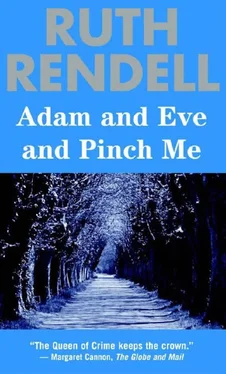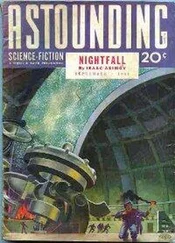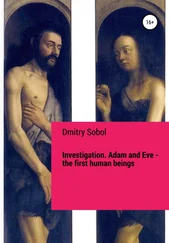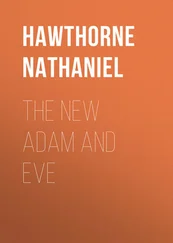“They have not got Dorset accents.”
“Oh, yes, they have, my darling. But we’ll soon change that. So how about it?”
“I’ll have to think it through, Jims,” said Zillah.
“Okey-dokey, only don’t take too long over it. I’ll give you a bell tomorrow.”
“Not tomorrow, Jims. Thursday. I’ll have decided by Thursday.”
“You’ll decide in my favor, won’t you, sweet? I’ll say I love you if you like, it’s almost true. Oh, and about the open marriage aspect, you’d understand, wouldn’t you, if I draw the line at that ex-husband of yours? I’m sure you know what I mean.”
After he’d gone, in the Range Rover, not the Ferrari, Zillah put on her duffel coat, a scarf that had been her mother’s, and a pair of over-large wellies some man had left behind after a one-night stand. She walked down the village street, thinking about herself and her situation, about Jerry and the future, about Jims and her relations with her parents, but mostly about herself. She had been christened Sarah, as had six other girls in her class at primary school, but discovering by means of a blood test in her teens that her group was B, a fairly rare blood group in all but Gypsies, and that Zillah was a favored Romany name, she rechristened herself. Now she tested it out with a new double-barreled surname. Zillah Melcombe-Smith sounded a lot better than Zillah Leach. But then almost anything would.
Fancy Jims knowing about Jerry. That is, knowing about the sort of unwritten arrangement she had with Jerry. Or had . Of course, she didn’t believe the letter she’d had, that was an insult to anyone’s intelligence. He didn’t own a computer. Some new woman must have written it. “Ex-husband” was the term Jims had used. Naturally he would, everyone did, though she and Jerry weren’t actually divorced; they’d never got round to it. And now if Jerry wasn’t dead, he wanted her to think he was, which amounted to the same thing. It meant he wouldn’t come back; the “arrangement” was over and the kids had lost their dad. Not that he’d ever been much of a father to them, more of a here-today-gone-tomorrow dropper-in. If she accepted Jims-how romantic and old-fashioned that sounded-would she be able to describe herself as a widow, or would it be safer to call herself single? If she accepted him it would be one in the eye for her mother and might stop her being so insufferably patronizing.
The village of Long Fredington was so called for the length of its main street, a full half-mile from Burton’s Farm in the cast to Thomas Hardy Close in the west. It was the largest of the Fredingtons, the others being Fredington St. Michael, Fredington Episcopi, Fredington Crucis, and Little Fredington. All were picturesque, the stuff of postcards, every house, even the newest, every barn, the church, the mill, the pub (now a private house), the school, and the shop (also now private houses) built of the same golden gray stone. If you were well-off, especially if you were well-off and retired, it was a charming place to live. If you had a car or two and a job in Casterbridge or Markton, a husband, and a nanny, it wasn’t so bad. For someone in Zillah’s position it was hell. Eugenie went to school on the bus, that was all right, but there was no nursery or preschool for Jordan and he was at home with her all day. She had no car, she hadn’t even got a bike. Once a week, if they hadn’t anything better to do, Annie at the Old Mill House or Lynn at La Vieille Ecole drove her ten miles to the Tesco to pick up supplies. Much less often, someone asked her round for a meal, but these were rare outings. They had husbands and she was a very good-looking unattached female. Anyway, she couldn’t get a babysitter.
At All Saints’ Church, a handsome fourteenth-century building from whose interior all the priceless brass had been stolen and melted down and the unique medieval wall paintings defaced with graffiti, she turned left down Mill Lane. After two smartly refurbished cottages were passed, all occupied dwellings ceased. But for birdsong, it was silent. The lane narrowed and beech branches met overhead. Although late autumn, the day was sunny and almost warm. If this was global warming, thought Zillah, she couldn’t get enough of it. Never mind the seas rising and the coastline disappearing, she didn’t live near the coast. And maybe she wouldn’t live down here at all much longer, not if she married Jims, her best friend, her childhood friend, really the nicest man she knew.
At the ford she trod carefully on the flat stones that formed a causeway across the brook. Ducks stared indifferently at her from the bank and a swan glided downstream. She had to admit it was pretty, and it would be a whole heap prettier if she could venture out into it from Fredington Crucis House wearing Armani jeans, a sheepskin jacket, and Timberland boots, having left the Range Rover parked outside the church. But Jims was gay, a difficulty not to be underrated. And what about Jerry? He wouldn’t have got whoever it was to send her that letter if he didn’t want her to think he was dead, but he was brilliant at changing his mind. If there was one thing beyond his liking mints and hating bananas that-well- defined Jerry, it was his rapid mind changes. Suppose he had a rethink and wanted to be alive again?
A large duckpond dominated the front garden, if this it could be called, of the Old Mill House. Although no rain had fallen in Long Fredington for a week and the stream water was exceptionally low, the banks of the pond were a quagmire. Waterfowl had been slopping about in it, animals with hooves had churned it up, and now Annie’s three children and her two were sitting in it, Annie’s Rosalba instructing her sister, Fabia, her brother, Titus, and Zillah’s children in the art of face-painting with mud. When Zillah came up the drive, she had just completed a rendering of a Union Jack in monochrome that extended from Jordan’s chin and round cheeks to his high domed forehead.
“Jordan ate a slug, Mummy,” said Eugenie. “Titus said there was this man ate a live goldfish and the cruelty to animals people made him pay a lot of money.”
“And Jordan wanted to eat one,” said Rosalba, “because he’s a naughty boy but there’s no goldfishes in our pond. So he ate a slug. And that’s cruel too and he’ll have to pay a hundred pounds.”
“Not a naughty boy,” Jordan wailed. Tears gushed out of his eyes and he rubbed them with his fists, ruining the Union Jack. “Won’t pay a hundred pounds. I want my daddy.”
Those words, frequently uttered, never failed to upset Zillah. She picked him up. He was wet through and covered with mud. Rather late in the day, she wondered indignantly what Annie was thinking of, leaving five children, the eldest of whom was eight, alone beside a large pond that must be at least six feet deep in the middle.
“I only left them for two minutes,” Annie cried, running out from the front door. “The phone was ringing. Oh, look at them! You three are going straight in the bath.”
Though she had no need to think of the cost of hot water as Zillah did, she didn’t offer to put Eugenie and Jordan in the bath. She didn’t ask Zillah in either. Jordan hung round Zillah’s neck, wiping his hands on her hair and rubbing his muddy cheek against hers. The chances were she’d have to carry him all the way home. She waited for Annie to say something about picking her up in the morning and taking her shopping, but Annie only said she’d see her soon and if she’d excuse her she’d have to get this lot cleaned up as she and Charles were going out to dinner in Lyme and they’d have to leave by seven.
Zillah sat Jordan on her right hip with her right arm round him. He was a heavy boy, big for his age. Eugenie said it was getting dark, which it wasn’t, not yet, and she’d be frightened if she didn’t hold Zillah’s hand.
Читать дальше











